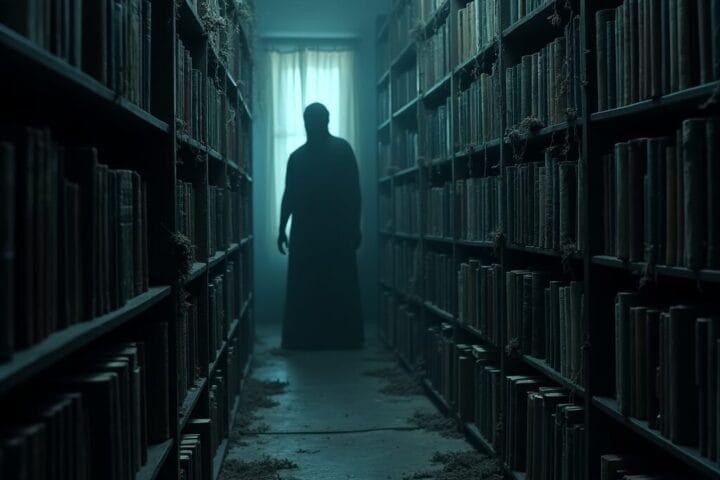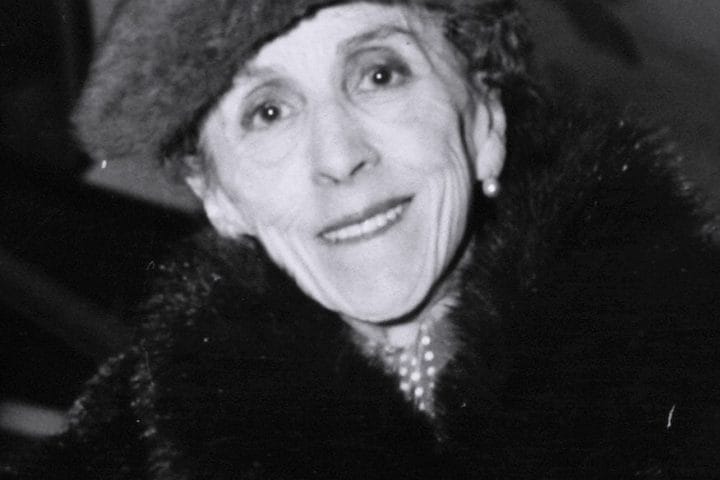Bret Easton Ellis is a name synonymous with the dark underbelly of 1980s and 1990s America, a cultural critic whose works delve into the excesses and moral ambiguities of his generation. While “American Psycho” may be his most infamous contribution to the literary world, Ellis’s career spans a fascinating array of novels that explore similar themes with a unique and unapologetically raw narrative style. From his early beginnings to his lasting impact on literature and media, Ellis’s work goes beyond the shocking imagery often associated with “American Psycho” and offers a compelling critique of modern society.
Early Life and Literary Beginnings
Bret Easton Ellis was born on March 7, 1964, in Los Angeles, California, a city emblematic of the glamor and superficiality that would later become central themes in his writing. He grew up in the affluent suburb of Sherman Oaks and attended The Buckley School, where he observed the lives of the wealthy and privileged—a recurring focus in his novels. His early exposure to the existential and postmodernist literature fueled his passion for writing, prompting him to start creating his own stories during his teenage years. After high school, Ellis enrolled at Bennington College in Vermont, where he mingled with other budding literary talents such as Donna Tartt and Jonathan Lethem. It was in this intellectually stimulating environment that Ellis began working on “Less Than Zero,” his debut novel that would later cement his status as a pivotal figure in contemporary American literature. The novel, written while he was still an undergraduate, drew from his personal experiences and the culture of Los Angeles, capturing the disenchanted youth of his generation.
The Breakthrough Success of ‘Less Than Zero’
Published in 1985, “Less Than Zero” catapulted Bret Easton Ellis to literary fame. Set against the backdrop of Los Angeles, the novel provides a stark portrayal of disaffected youth navigating a world of privilege, excess, and moral ambiguity. Narrated by Clay, a college freshman returning home for Christmas break, the story unflinchingly chronicles the lives of his friends as they indulge in drugs, sex, and nihilistic pursuits. The minimalist style and fragmented narrative structure of “Less Than Zero” mirror the disjointed and superficial existence of its characters. Ellis’s depiction of a generation lost in hedonism struck a chord with readers and critics alike. The novel’s raw and honest portrayal of the emptiness behind the glittering facade of wealth and fame was both captivating and unsettling, earning Ellis praise for his incisive social commentary. “Less Than Zero” quickly became a cultural phenomenon, solidifying Ellis’s reputation as a bold new voice in contemporary American literature. Its success laid the groundwork for his subsequent works, positioning him as a keen observer of the darker aspects of modern life.
American Psycho: Controversy and Cultural Impact
Upon its 1991 release, “American Psycho” ignited a firestorm of controversy. The novel follows Patrick Bateman, a Wall Street investment banker who moonlights as a serial killer, serving as a brutal commentary on consumer culture and identity. Its graphic depictions of violence and materialism were polarizing; some saw it as misogynistic, while others hailed it as a scathing satire of capitalism’s emptiness. This dichotomy only amplified its cultural resonance, making “American Psycho” a touchstone for discussions on societal norms and excess. The 2000 film adaptation further cemented its status, extending its influence and sparking new debates about the boundaries of artistic expression.
Subsequent Works and Continued Themes
Following the uproar surrounding “American Psycho,” Bret Easton Ellis delved deeper into themes of decadence, identity, and moral ambiguity in his later novels. “The Rules of Attraction” (1987) dissects the tangled relationships and existential ennui of college students, presenting a bleak yet compelling view of youthful aimlessness. “Glamorama” (1998) satirizes the vacuous nature of fashion and celebrity culture, weaving a surreal and chaotic narrative that critiques the obsession with fame and superficiality. “Lunar Park” (2005) stands out for its metafictional approach, blending elements of horror and autobiography. In it, Ellis fictionalizes his own life, grappling with personal demons and the consequences of fame. The novel blurs the lines between reality and fiction, offering a deeply introspective look at the author’s psyche. These works showcase Ellis’s evolving narrative style and his willingness to push literary boundaries. By continuously exploring the darker aspects of human nature and the impact of modern culture, Ellis has solidified his reputation as a daring and thought-provoking author. His subsequent novels not only build on the existential concerns introduced in “Less Than Zero” but also expand his critique of contemporary society.
Stylistic Approaches and Narrative Techniques
Bret Easton Ellis’s writing is marked by a detached tone, sparse prose, and fragmented narrative structures, effectively conveying the emotional disconnection and existential ennui of his characters. Often employing unreliable narrators, Ellis invites readers to navigate layers of ambiguity, challenging them to discern reality from distortion. His frequent use of pop culture references and brand names firmly roots his stories in their specific era, offering a biting critique of consumerism and the superficiality of modern life. Ellis’s minimalist style amplifies the bleakness and moral ambiguity that permeate his narratives. The dispassionate observations and dialogue contribute to a sense of disillusionment, mirroring the inner voids of his characters. This stylistic approach is not just a hallmark but a deliberate method to immerse readers in the vacuous and often disturbing worlds he creates, forcing them to confront the darker facets of contemporary society. Through these narrative techniques, Ellis masterfully blends authenticity with a stark, often unsettling, portrayal of modern life. This approach not only engages readers on a surface level but also prompts deeper reflections on the pervasive influence of consumer culture and the complexities of identity in a fragmented world.
Ellis’s Influence on Modern Literature and Media
Bret Easton Ellis has left a lasting mark on modern literature and media, significantly shaping the narrative landscape. His distinctive themes and stylistic approaches have influenced a range of filmmakers, musicians, and writers. Film adaptations of his novels, such as “Less Than Zero,” “The Rules of Attraction,” and “American Psycho,” have brought his provocative and unsettling storytelling to a broader audience, reinforcing his presence in popular culture. Ellis’s exploration of identity crises, existential ennui, and the vacuous nature of consumerism has resonated deeply within the artistic community. His ability to capture the zeitgeist of different eras has inspired a generation of creatives to probe similar themes in their own works. The minimalism and detached prose he employs have been particularly influential, encouraging authors to adopt a more stripped-down and raw narrative style. Furthermore, Ellis’s critical perspective on modern life’s superficiality and moral ambiguity has sparked dialogue across various media platforms. His storytelling not only engages audiences but also challenges them to reflect on the pervasive issues within contemporary society. This lasting influence cements Ellis’s role as a pivotal figure in the evolution of postmodern literature and culture.
Controversies and Public Perception
Bret Easton Ellis’s career has been marked by significant controversies, largely due to the provocative content of his novels and his outspoken nature. The explicit depictions of violence, sexuality, and moral decay in works like “American Psycho” have led to debates about the ethical responsibilities of authors and the impact of graphic content on readers. Critics have often accused Ellis of misogyny and gratuitous sensationalism, while supporters argue that his work serves as a necessary critique of societal issues. Beyond his literary output, Ellis’s public persona has also been a source of contention. Known for his unfiltered remarks on social media and in interviews, Ellis has sparked outrage and admiration in equal measure. His comments on contemporary culture, politics, and other writers have often been divisive, reinforcing his image as a provocative and polarizing figure. This duality extends to his audience as well; some see him as a fearless commentator unafraid to tackle uncomfortable truths, while others view him as deliberately controversial and insensitive. Regardless of the differing opinions, Ellis’s ability to generate discussion and challenge prevailing norms has solidified his position as a significant, albeit contentious, voice in modern literature.
The Legacy of Bret Easton Ellis
Bret Easton Ellis’s legacy lies in his bold narrative style and his willingness to delve into the darker aspects of human nature and modern society. His controversial yet impactful works have prompted readers to grapple with uncomfortable truths, sparking important conversations about consumerism, identity, and moral ambiguity. Ellis’s minimalist prose and fragmented narratives have influenced a new generation of writers, encouraging them to explore similar themes with raw authenticity. Ellis’s contributions extend beyond literature, permeating film, music, and broader cultural dialogues. His ability to capture the essence of various eras and critique the superficiality of modern life has left an indelible mark on the arts. Despite—or perhaps because of—the controversies surrounding his work, Ellis remains a pivotal figure whose storytelling continues to challenge and inspire.













